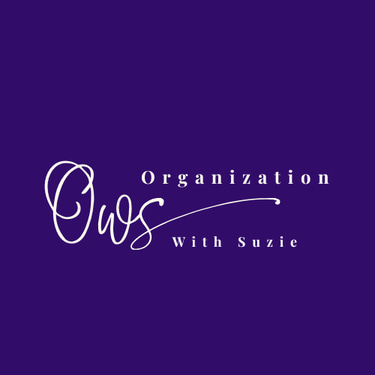How to Overcome Mental Fatigue for Peak Professional Performance


Understanding Mental Fatigue and Its Impact on High Achievers
Mental fatigue is a term that refers to a state of cognitive and emotional exhaustion stemming from prolonged periods of stress, intense focus, or multitasking. This condition is particularly prevalent among high achievers in demanding professions, where the pressures to perform consistently at elevated levels can become overwhelming. As these individuals juggle a multitude of responsibilities and deadlines, they often push themselves beyond healthy limits, leading to an unfortunate decline in their overall productivity and well-being.
High achievers tend to pride themselves on their work ethic and ability to manage demanding workloads. However, the reality is that the expectations placed upon them can be detrimental. Studies indicate that mental fatigue not only decreases productivity but can also lead to burnout, a deeper and more pervasive state of weariness that can take significant time to recover from. Therefore, recognizing the signs of mental fatigue becomes critical for maintaining high performance. Symptoms may include lack of motivation, irritability, impaired concentration, and diminished creativity, which can all severely impact work quality.
Statistics reveal that nearly 30% of professionals experience symptoms of mental fatigue regularly, a figure that continues to rise. This indicates that many individuals in similar roles share the burden of these feelings, reinforcing the idea that they are not alone in their struggles. Anecdotal evidence from high achievers frequently highlights critical turning points where the acknowledgment of mental fatigue led to necessary changes in their work habits. These changes often include prioritizing mental health, establishing boundaries, and practicing self-care methods to rebuild resilience and enhance overall efficacy in their professional endeavors.
The Desirability of Peak Professional Performance
Achieving peak professional performance stands as a fundamental goal for many individuals within the workforce. It is not merely a personal ambition but rather an essential component of career success and fulfillment. The pursuit of efficiency in one’s professional life can yield numerous benefits, including enhanced productivity levels, increased job satisfaction, and an overall improvement in well-being. When professionals operate at their peak, they often exhibit better decision-making capabilities and creativity, which can contribute to their company’s goals and objectives.
Moreover, mental fatigue can significantly hinder one’s ability to perform optimally. It creates barriers to focused work, leading to diminished productivity and increased susceptibility to errors. Therefore, addressing mental fatigue becomes crucial not only for personal satisfaction but also for the sustainability of one’s professional performance. Professionals who effectively manage their mental fatigue are more likely to encounter a positive feedback loop, allowing them to maintain high levels of output without succumbing to burnout. The constant cycle of high performance followed by recovery contributes to lasting success in any career path.
As individuals ponder their performance levels, it may be beneficial to ask oneself reflective questions such as:
Are you currently operating at your highest potential?
What strategies do you implement to manage stress and fatigue in your day-to-day tasks?
Such self-reflection can unveil areas for improvement and guide professionals toward reaching their peak performance. By emphasizing the importance of overcoming mental fatigue, the focus shifts towards creating a balanced approach to work, enabling professionals to sustain high-quality results over the long term while cultivating a fulfilling professional life.
Simple Strategies to Overcome Mental Fatigue
Mental fatigue can significantly hinder professional performance, but there are several effective strategies to combat it. Implementing daily habits, workplace practices, and lifestyle changes can promote a more manageable work-life balance, ultimately enhancing productivity.
One effective daily habit is mindfulness. Incorporating mindfulness meditation or prayer and devotionals into your routine can help clear mental cobwebs and sharpen focus. Spending as little as 5-10 minutes each day practicing mindfulness techniques, such as focused breathing or body scans, allows individuals to center themselves and reduce stress. This practice enhances mental clarity and can be particularly beneficial before starting complex tasks.
Time management is another key practice for overcoming mental fatigue. Employing techniques like the Pomodoro Technique, which involves working for 25 minutes followed by a 5-minute break, can increase productivity while preventing burnout. By allocating specific times for focused work, you create a structure that allows for mental rejuvenation and better overall output.
Frequent breaks play an essential role in maintaining mental energy. Research indicates that short, regular breaks throughout the workday can improve concentration and stave off fatigue. During breaks, stepping away from your workspace for a short walk, stretching, or practicing a relaxation exercise can help refresh the mind and body, making it easier to tackle subsequent tasks.
Setting realistic goals is vital for sustaining motivation and reducing overwhelming feelings. Breaking larger projects into smaller, manageable tasks with achievable deadlines can assuage feelings of mental exhaustion. This method not only helps in tracking progress but also fosters a sense of accomplishment as each task is completed.
Lastly, maintaining a healthy lifestyle is crucial. Adequate sleep, regular physical activity, and balanced nutrition can substantially influence cognitive functioning and energy levels. Ensuring that you hydrate sufficiently and consume a balanced diet rich in fruits, vegetables, and whole grains can provide the necessary nutrients to sustain energy throughout the day.
Taking Action: Your Personal Activity for Peak Performance
To effectively overcome mental fatigue and strive for peak professional performance, it is essential to take decisive action. We invite you to engage in a reflective activity that will assist you in identifying the sources of your mental fatigue and formulate a personalized plan tailored to your specific needs. This activity requires you to dedicate a set amount of time to engage in self-reflection regarding your current workload and the stressors that may be contributing to your decline in productivity.
Begin by assessing your typical daily activities.
Make a list of tasks that you find particularly taxing. Consider the emotional and cognitive demands of these tasks and the impact they have on your energy levels.
Take note of any patterns you observe; for instance, do certain responsibilities lead to greater feelings of fatigue? Are there specific times of the day when your focus wanes?
Documenting these insights will help clarify your current challenges.
Once you have pinpointed your sources of mental fatigue, the next step is to actively create a strategy for improvement.
Choose one of the methods discussed in previous sections, such as time management techniques, mindfulness practices, or regular exercise, and detail how you intend to implement it into your routine.
Establish a timeline for integrating this strategy into your daily life and set measurable goals to track your progress.
Finally, consider sharing your reflections and action plan with family, friends, colleagues, or a mentor. By doing so, you will not only hold yourself accountable but also foster a sense of community among fellow professionals who are on their journey towards achieving peak performance. Your experiences may inspire others and create a supportive network that motivates everyone to overcome mental fatigue together.


